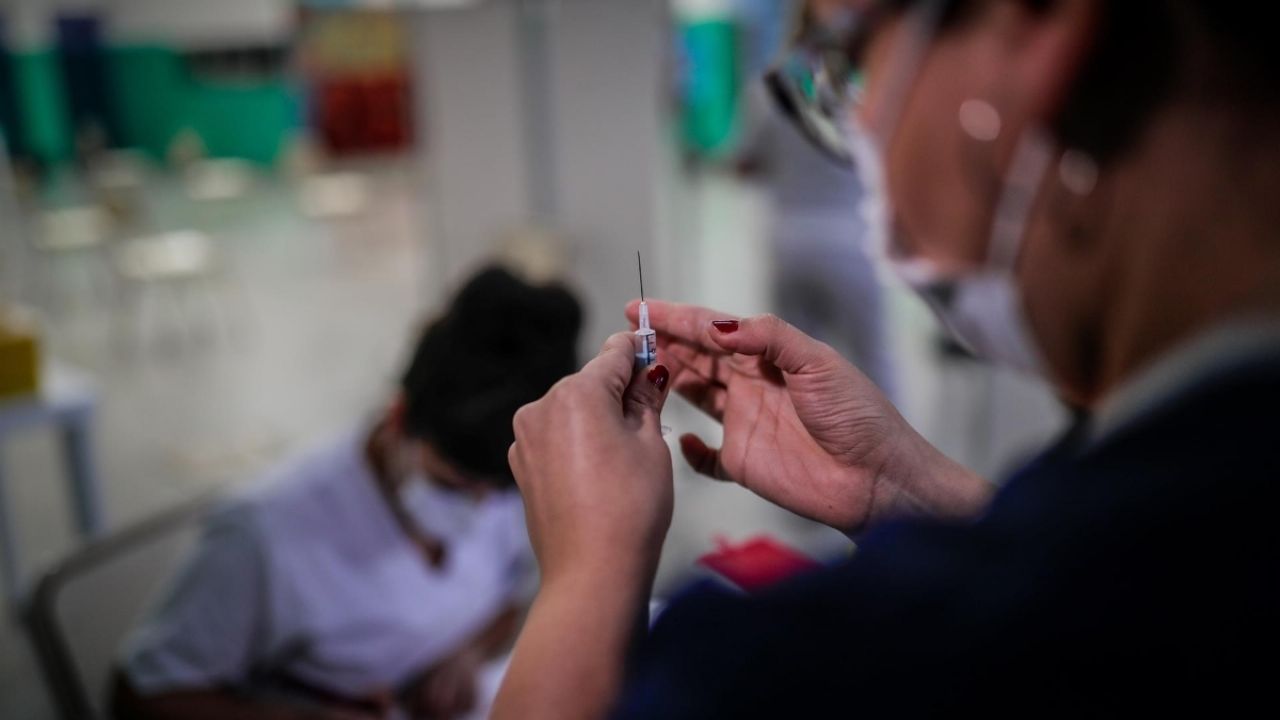
A total of 57 countries have already detected cases of the new omicron variant of the coronavirus, although many of them without symptoms or mild, highlights the World Health Organization (who) in a report where it warns about the high possibility of reinfection that the new strain seems to have.
The organization’s weekly epidemiological report highlights that the 212 confirmed cases in 18 countries of the European Union (EU) were in people with mild or even asymptomatic symptoms. The who warns however that although the omicron variant may cause fewer severe cases than the delta (currently predominant) could increase hospitalizations and deaths if, as is feared, it is more contagious and causes more infections usually.
In the last 60 days, out of the 900 thousand Covid-19 cases analyzed by the GISAID global laboratory network more than 99% are still caused by delta variant of coronavirus, and only 713 (0.1%) belong to the omicron. However, that number is considerably higher than indicated by the who a week ago (when GISAID had identified 14 cases of omicron) and the variant already outnumbered others previously detected, such as alpha or gamma.
Ómicron would become the dominant variant in the EU
The who cites forecasts from the European Center for Disease Prevention and Control, which hopes that the omicron will become the dominant variant in the EU (more than 50% of cases) between January and March 2022, depending on the level of transmissibility that I end up having.
The who highlights the strong increase in cases in southern African countries, the region where the omicron was first detected: not only South Africa, where the cases have doubled in a week (111% more), but Eswatini (1,990%), Zimbabwe (1,361%), Mozambique (1,0207%), Namibia (681%) and Lesotho (219%).
The report nonetheless underlines that these strong increases could be related to the higher number of diagnostic tests that have been practiced in those countries in recent weeks due to the alarm over the omicron variant. One of the major concerns of the new variant is its apparently high level of reinfection, that is, the ability to infect people who have already had the disease and had therefore developed natural antibodies against the coronavirus.
Variant spreads rapidly in highly immunized population
The who stresses in this sense that the variant “seems to spread rapidly in a highly immunized population such as that of South Africa.” Although the vaccination rate against Covid on South Africa is low (around 35%), WHO believes that the country has a level of immunization of its adults between 60% and 80%, due to the high number of people estimated to have passed the disease.
The report of the who still does not shed light on the possible effect of the new variant on anticovid vaccines, but points out that the treatments used in severe cases of the disease (corticosteroids, interleukin-6 antagonists) seem to continue to work under this strain.
Double-dose Pfizer gives less omicron protection, study reveals
A little study A preliminary study carried out in South Africa suggests that the protection offered by the antibodies of a double dose of the pfizer vaccine looks quite reduced but not totally canceled with the omicron variant and points out that the infected before and vaccinated they are more protected.
The study, based on the analysis of the effects of omicron on blood samples from 12 people previously vaccinated in South Africa with the anticovid solution of Pfizer-BioNTech, was carried out by specialists from the Africa Health Research Institute (Africa Health Research Institute, AHRI) and published last night for peer review by the scientific community.
“Laboratory research of South Africa strongly suggests that the omicron variant of SARS-COV-2 escapes antibody immunity induced by Pfizer-BioNTech vaccine (Comirnaty), but that people who were both vaccinated and previously infected retain considerable immunity“noted AHRI (which is based in the city of Durban) in the presentation of the report.
The institute’s executive director, Willem Hanekom, pointed out that the “clinical implications” of these preliminary data are still to be defined and he specified that, although the most probable conclusion is that the existing formulas offer less protection in view of omicron, “vaccinologists agree that current vaccines they still protect against serious illness and death. ”
While these data cannot be directly equated in terms of vaccine efficacy, the drop in protection of the antibodies observed is 41 times higher for the omicron variant than for the original coronavirus. One of the authors of the study, researcher Alex Sigal, later specified through social networks that the data from this study are “better” than initially expected for omicron, in view of their multiple mutations.
KEEP READING:
Vaccine Creator AstraZeneca Reveals How DEADLY the Next Pandemic Will Be; Worse than COVID-19?
Covid-19: WHO rules out that omicron is more dangerous than other variants
Christmas in a pandemic: 4 tips for having a safe and joyful holiday season



